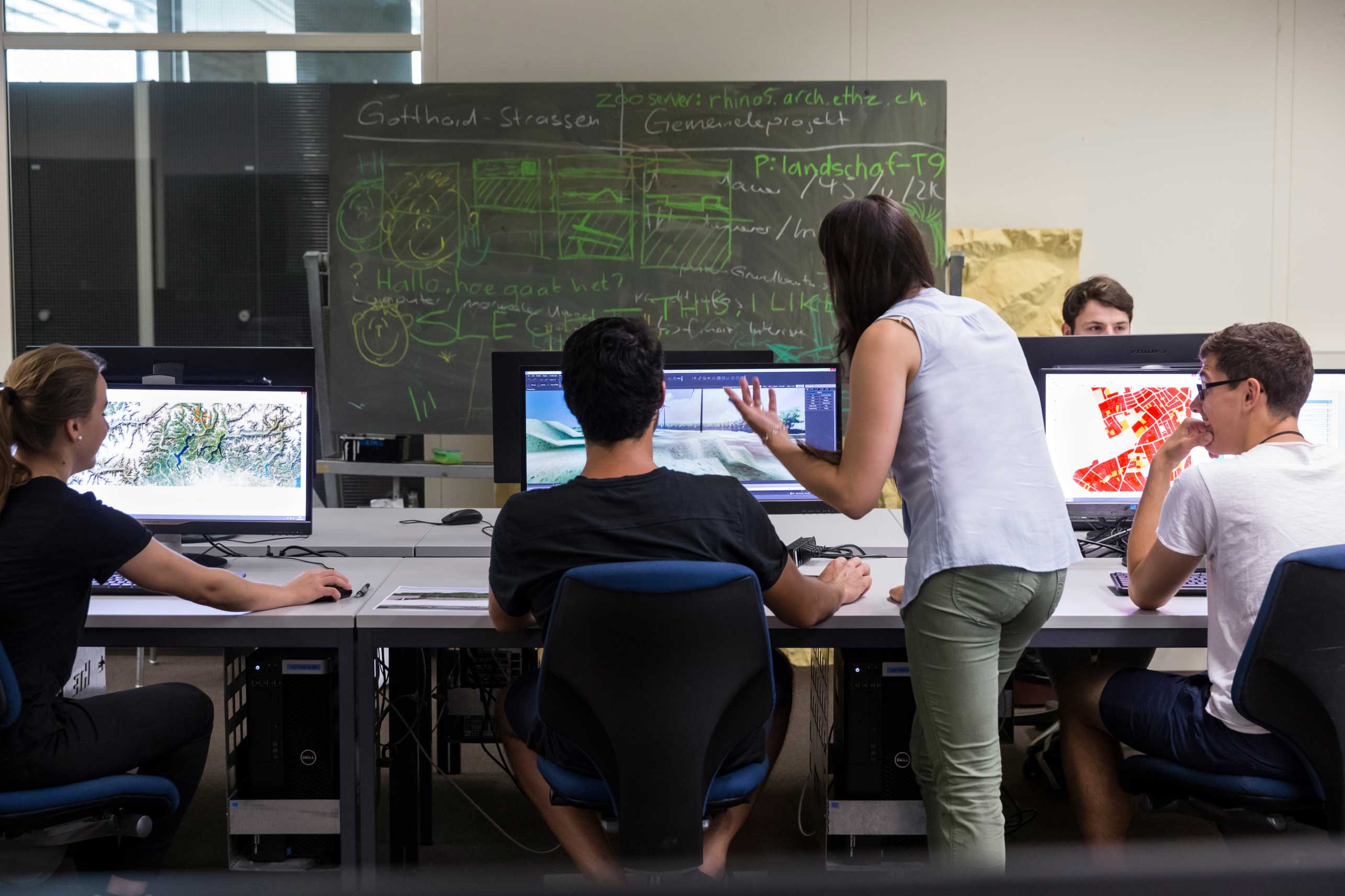Bachelor's degree

The European Credit Transfer System ECTS is used to provide evidence of the necessary academic achievement. At least 180 credits have to be obtained for the Bachelor's degree. One credit will be awarded for the equivalent of approximately 30 hours of study.
First year
In the first year, the programme will include mathematics, statistics and computer science as well as subjects from the fields of geomatic engineering, and geospatial and transport planning. This gives the students an early insight into the wide range of specialisation options available.
Project work makes it possible to take on a subject-related challenge within a team and, at the same time, to develop essential metadisciplinary skills.
Geodetic metrology is tested live in the field on the one-week field course at the end of the semester, far from the day-to-day lectures and practicals. For many students, that week is an unforgettable highlight of the course.
With the exception of project work, all subjects are examined in a first-year examination after the first year of studies.
Subject-specific principles
The primary attention in the second and third years is on subjects that focus on the collection, analysis, visualisation and use of geospatial data. Students can choose at least three out of six elective modules, starting from the fourth semester. Many courses combine theoretical and practical elements within the scope of exercises.
The performance assessments for the compulsory subjects are grouped into examination blocks. The remaining subjects must be passed individually.
Bachelor's degree
The Bachelor’s degree studies conclude with the Bachelor’s thesis, an independent academic work.
The Bachelor's degree in Geospatial Engineering leads directly to the two Master’s degree programmes in Geomatics and Spatial Development and Infrastructure Systems. In addition, it provides access to interdisciplinary Master’s degree programmes at ETH Zurich such as Management, Technology and Economics or Integrated Building Design.
Language
Subjects are delivered in German in the first academic year. Individual learning units are in English in the advanced semesters.